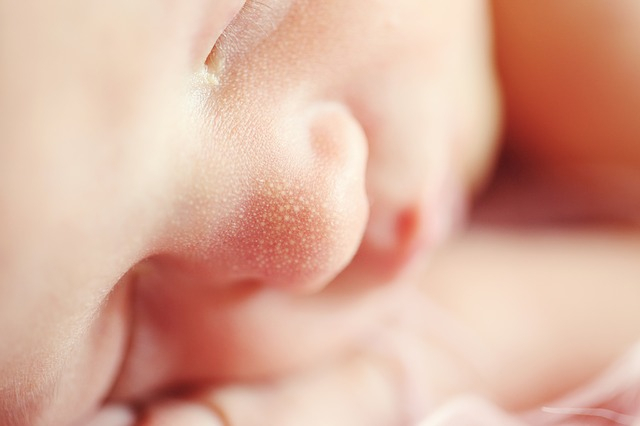
Babies born by cesarean section have different gut bacteria than babies born vaginally, who pick up microbes from their mothers, a study has shown.
According to the study published in journal Nature, collection of samples of gut microbiome at various points through the first month of life from 314 babies born vaginally and 282 born by C-section, revealed cesarean babies take on bacteria from the hospital environment and the species of bacteria vary widely and change frequently through the first few weeks of a newborn's life.
But factors beyond the method of delivery probably contribute to the differences in microbiota such as mothers who have c-section births receive antibiotics that can cross the placenta and their babies tend to spend longer in hospital and receive microbe-filled breast milk later than infants born vaginally, said Josef Neu, a neonatologist at the University of Florida College of Medicine in Gainesville.
The c-section babies tend to lack strains of gut bacteria found in healthy children and adults, and their guts, instead, harbor harmful microbes common in hospitals, including Enterococcus and Klebsiella, the study revealed.
"The level of colonization by health-care pathogens is shocking in these children. When I first saw the data, I couldn't believe it," Trevor Lawley, lead author and a microbiologist at the Wellcome Sanger Institute in the UK, said.
Lawley's study, a part of larger effort called the Baby Biome Study, which aims to follow thousands of more newborns into childhood, follows epidemiological studies which suggest children born by c-section have an increased risk of asthma and obesity later in life.
The microbiomes of c-section babies eventually shift to better match those of vaginally born babies, but the period when they were different is still significant as that is when the immune system develops, Popular Science cited Meghan Azad, a research scientist at the Children's Hospital Research Institute of Manitoba, as saying.
Rob Knight, a microbiologist at the University of California, said the study could help in identifying specific microbe strains that could be administered to c-section babies to make their microbiotas resemble those of vaginally delivered babies.
He has previously conducted a small trial of vaginal seeding, a controversial method, and performed the procedure with his wife after their daughter was born by emergency c-section in 2011.








